Nidana Sutta: Buddha Teaches the Three Causes for the Origination of Actions — Greed, Aversion, and Delusion: Sutra
Shakyamuni Buddha taught the path to freedom from suffering (Pali, Dukkha, Sanskrit Duhkha), beginning with the causes of our suffering. In his first teaching on the Four Noble Truths, he taught “three types of suffering are distinguished: they result, respectively, from pain, such as old age, sickness, and death.” [For more on the Four Noble Truths, see>>]
Karmic Causes of Suffering
But, what are the direct karmic causes of these sufferings? Bound up in these causes is the “prescription” for removing the causes — the Eightfold Path to freedom. [For more on the Eightfold Path, see>>] Buddha eloquently describes this with the metaphor of “digging up the root.” Buddha extensively taught these causes and more elaborately the Doctrine of Dependent Arising. [For a feature on Dependent Arising, see>>]
One of the most elegant teachings on the causes was the Nidana Sutta, here translated from the Pali by Thanissaro Bhikku.
“Monks, these three are causes for the origination of actions. Which three? Greed is a cause for the origination of actions. Aversion is a cause for the origination of actions. Delusion is a cause for the origination of actions.
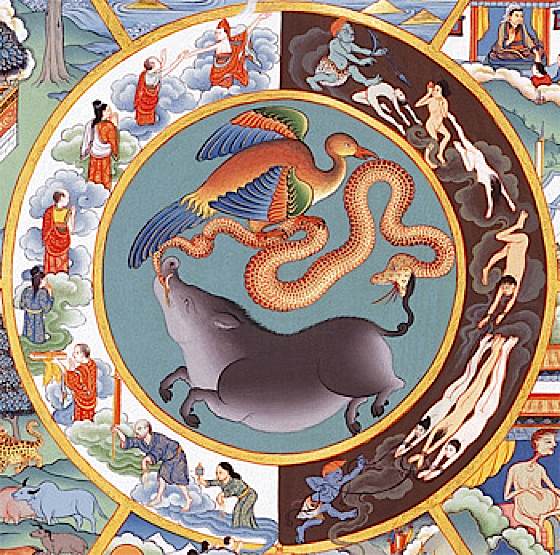
Nidana Sutta: Causes Sutra
Translated from the Pali by Thanissaro Bhikkhu.
“Monks, these three are causes for the origination of actions. Which three? Greed is a cause for the origination of actions. Aversion is a cause for the origination of actions. Delusion is a cause for the origination of actions.
Greed
“Any action performed with greed — born of greed, caused by greed, originating from greed: wherever one’s selfhood turns up, there that action will ripen. Where that action ripens, there one will experience its fruit, either in this very life that has arisen or further along in the sequence.
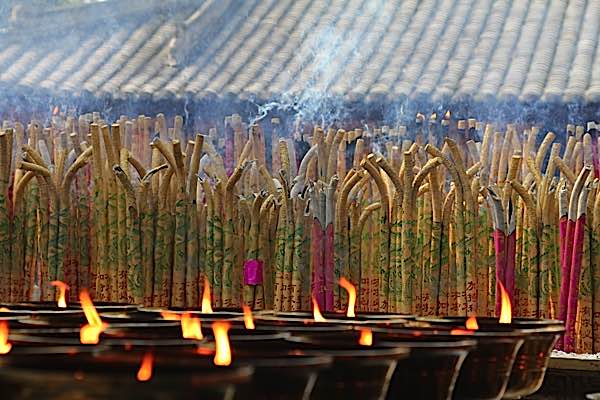
Aversion
“Any action performed with aversion — born of aversion, caused by aversion, originating from aversion: wherever one’s selfhood turns up, there that action will ripen. Where that action ripens, there one will experience its fruit, either in this very life that has arisen or further along in the sequence.
Delusion
“Any action performed with delusion — born of delusion, caused by delusion, originating from delusion: wherever one’s selfhood turns up, there that action will ripen. Where that action ripens, there one will experience its fruit, either in this very life that has arisen or further along in the sequence.
“Just as when seeds are not broken, not rotten, not damaged by wind and heat, capable of sprouting, well-buried, planted in well-prepared soil, and the rain-god would offer good streams of rain. Those seeds would thus come to growth, increase, and abundance. In the same way, any action performed with greed… performed with aversion… performed with delusion — born of delusion, caused by delusion, originating from delusion: wherever one’s selfhood turns up, there that action will ripen. Where that action ripens, there one will experience its fruit, either in this very life that has arisen or further along in the sequence.
“These are three causes for the origination of actions.
Non-Greed
“Now, these three are [further] causes for the origination of actions. Which three? Non-greed is a cause for the origination of actions. Non-aversion is a cause for the origination of actions. Non-delusion is a cause for the origination of actions.
“Any action performed with non-greed — born of non-greed, caused by non-greed, originating from non-greed: When greed is gone, that action is thus abandoned, its root destroyed, like an uprooted palm tree, deprived of the conditions of development, not destined for future arising.
Non-Aversion
“Any action performed with non-aversion — born of non- aversion, caused by non-aversion, originating from non- aversion: When aversion is gone, that action is thus abandoned, destroyed at the root, like an uprooted palm tree, deprived of the conditions of development, not destined for future arising.
Non-Delusion
“Any action performed with non-delusion — born of non-delusion, caused by non-delusion, originating from non- delusion: When delusion is gone, that action is thus abandoned, its root destroyed, like an uprooted palm tree, deprived of the conditions of development, not destined for future arising.
“Just as when seeds are not broken, not rotten, not damaged by wind and heat, capable of sprouting, well-buried, planted in well-prepared soil, and a man would burn them with fire and, burning them with fire, would make them into fine ashes. Having made them into fine ashes, he would winnow them before a high wind or wash them away in a swift-flowing stream. Those seeds would thus be destroyed at the root, like an uprooted palm tree, deprived of the conditions of development, not destined for future arising.
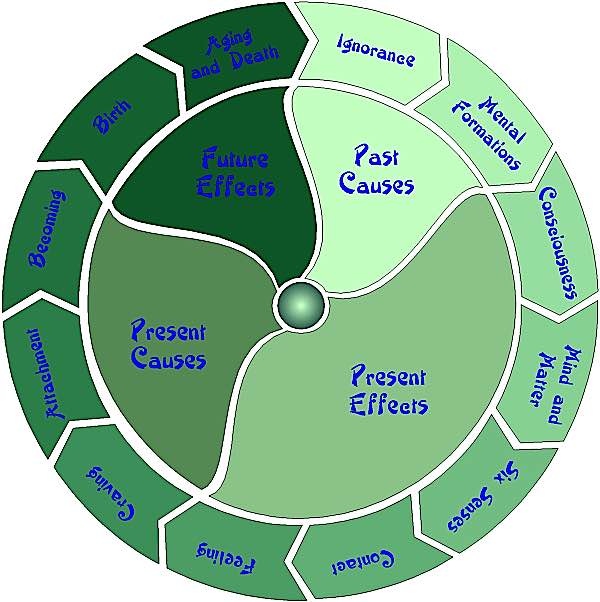
The Root is Destroyed
“In the same way, any action performed with non-greed… performed with non-aversion… performed with non-delusion — born of non-delusion, caused by non-delusion, originating from non-delusion: When delusion is gone, that action is thus abandoned, its root destroyed, like an uprooted palm tree, deprived of the conditions of development, not destined for future arising.
“These, monks, are three causes for the origination of action.”
A person unknowing: the actions performed by him, born of greed, born of aversion, and born of delusion, whether many or few, are experienced right here: no other ground is found.[1]; so a monk, knowing, sheds greed, aversion, and delusion; giving rise to clear knowledge; he sheds all bad destinations.[2]
Footnotes
1. According to the Commentary, “right here” means within the stream of one’s own “selfhood” (attabhava), i.e., one’s own
chain of rebirth. “No other ground is found” means that the fruit of the action is not experienced by any other person’s chain of rebirth. [Go back]
2. The Commentary notes that this verse refers to the attainment of arahantship, and that an arahant — in reaching nibbána — sheds not only bad destinations, but also good ones.
The word “sheds” acts as a “lamp” in this verse — it appears only once, but functions in two phrases, as I have rendered it in the translation. On the use of the lamp as a literary figure of speech, see the Introduction to Dhammapada: A Translation.
1 thought on “Nidana Sutta: Buddha Teaches the Three Causes for the Origination of Actions — Greed, Aversion, and Delusion: Sutra”
Leave a Comment
More articles by this author

Offering Light for Saga Dawa Duchen and the Month of Merits: Buddha’s Birthday, Enlightenment and Paranirvana 100 Million Merit Day
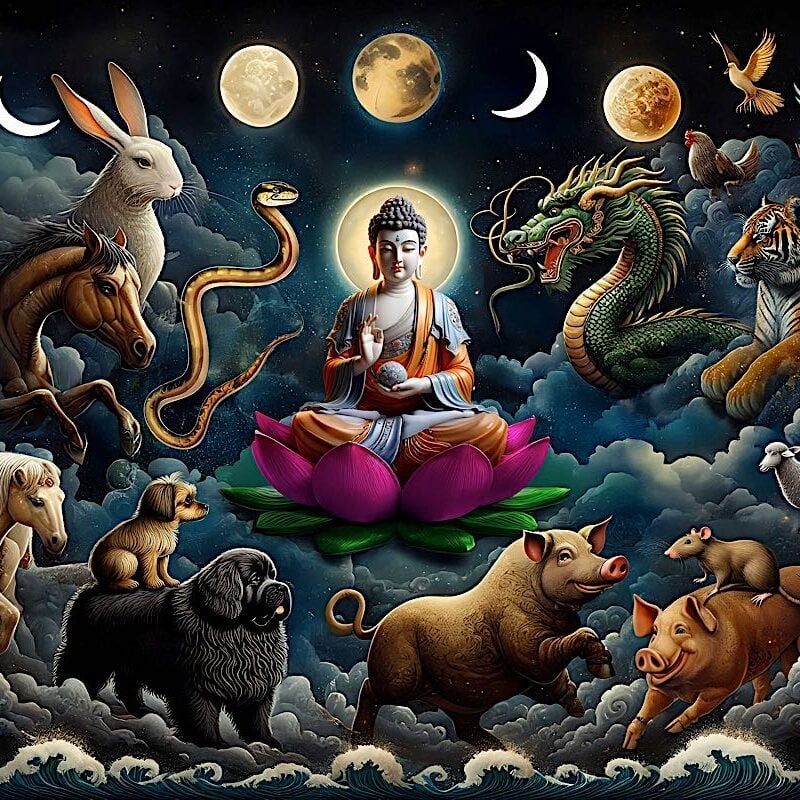
Who is my Enlightened Life Protector Based on Tibetan Animal Sign Zodiac in Buddhism? According to Mewa, Mahayana tradition and Kalachakra-based astrology (with Mantra Videos!)
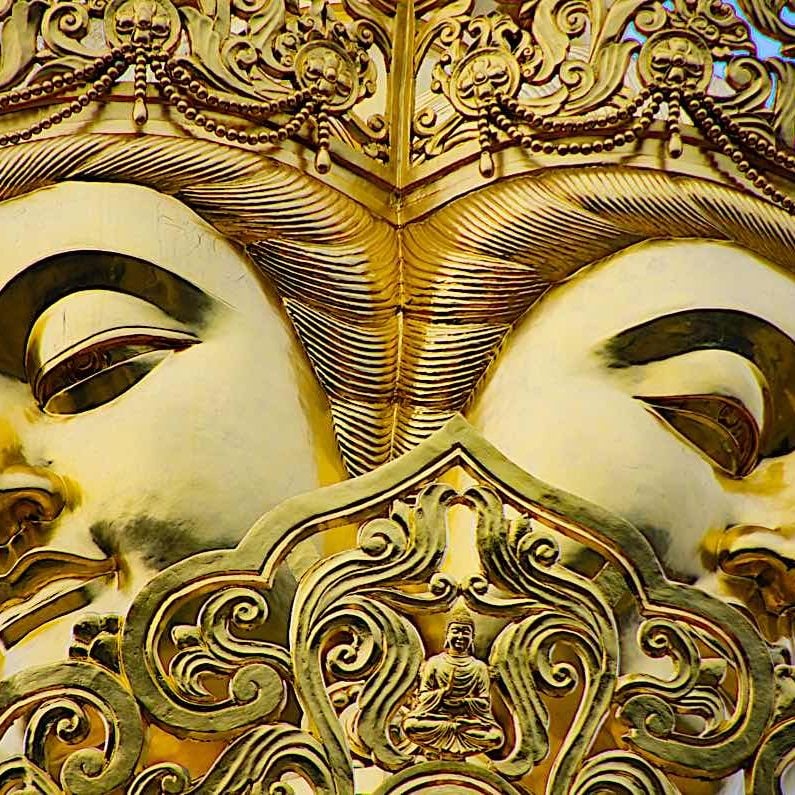
Samantabhadra’s The King of Prayers is the ultimate Buddhist practice how-to and itself a complete practice
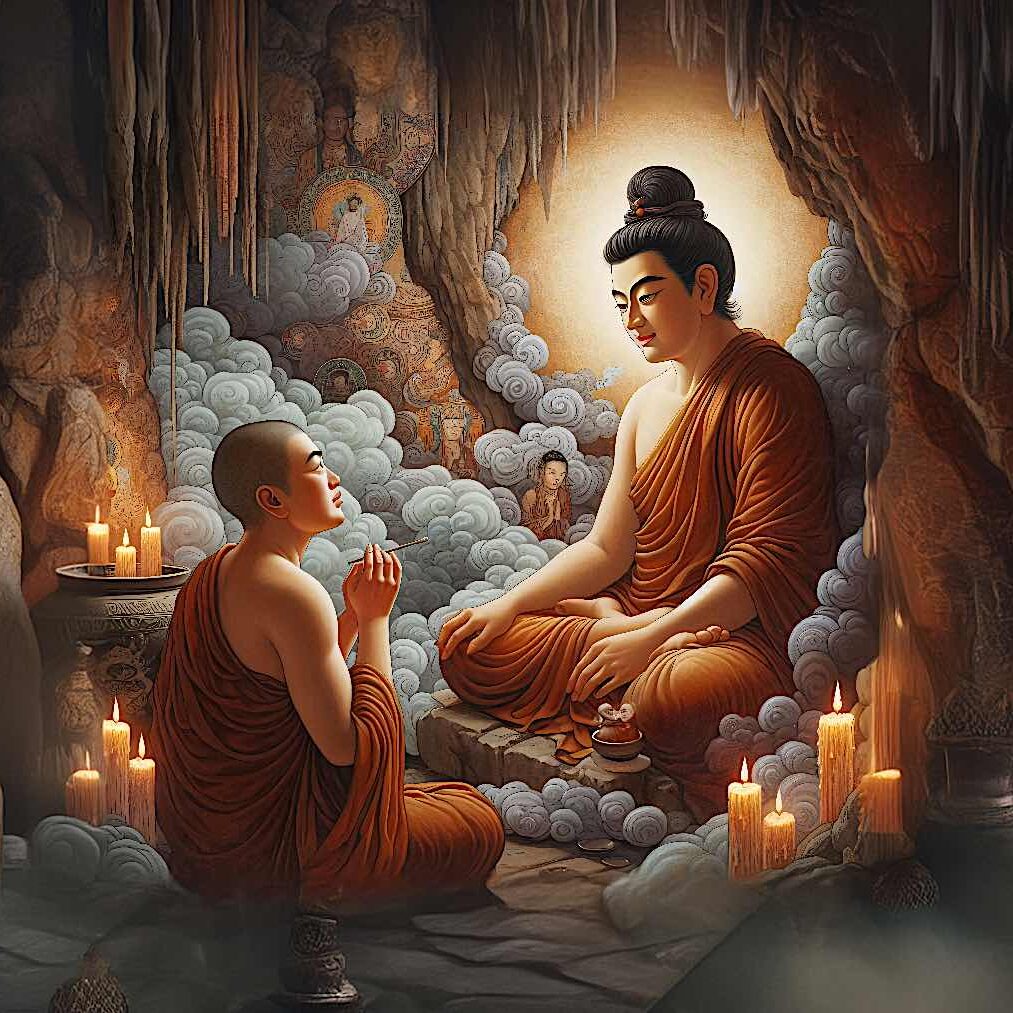
Bodhisattva Vow and the Bonding Aspiration of the 5 Buddha Families: Reversing Dharma Downfalls, Purifying Karma, and Restoring Commitments
Search
Latest Features
Please support the "Spread the Dharma" mission as one of our heroic Dharma Supporting Members, or with a one-time donation.
Please Help Support the “Spread the Dharma” Mission!

Be a part of the noble mission as a supporting member or a patron, or a volunteer contributor of content.
The power of Dharma to help sentient beings, in part, lies in ensuring access to Buddha’s precious Dharma — the mission of Buddha Weekly. We can’t do it without you!
A non-profit association since 2007, Buddha Weekly published many feature articles, videos, and, podcasts. Please consider supporting the mission to preserve and “Spread the Dharma." Your support as either a patron or a supporting member helps defray the high costs of producing quality Dharma content. Thank you! Learn more here, or become one of our super karma heroes on Patreon.
Lee Kane
Author | Buddha Weekly
Lee Kane is the editor of Buddha Weekly, since 2007. His main focuses as a writer are mindfulness techniques, meditation, Dharma and Sutra commentaries, Buddhist practices, international perspectives and traditions, Vajrayana, Mahayana, Zen. He also covers various events.
Lee also contributes as a writer to various other online magazines and blogs.




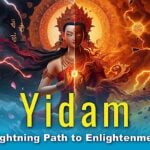



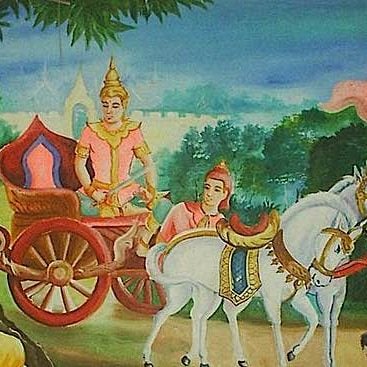






“Then, with the light of compassion, you, a lion among men,
Summoned Indra and Prajāpati (Brahmā),
Who arrived with a majestic, melodious sound
And a blazing thousand-spoked wheel of gold.
They urged you to turn the sacred Dharma Wheel,
And, upon a throne supported by lions,
You sounded your fearless roar
Of threefold formulation.”
དེ་ཚེ་མི་ཡི་སེང་གེའི་ཐུགས་རྗེའི་འོད། །
རབ་བསྐུལ་བརྒྱ་བྱིན་དང་ནི་སྐྱེ་དགུའི་བདག །
མདུན་དུ་ལྷགས་ཏེ་སྐྱེ་ལྔའི་སྒྲ་དབྱངས་དང་། །
གསེར་སྦྱངས་འཁོར་ལོ་རྩིབས་སྟོང་འབར་བ་ཐོགས། །
ཆོས་ཀྱི་འཁོར་ལོ་དམ་པ་བསྐོར་བར་བསྐུལ། །
དེ་ཚེ་གདོང་ལྔས་བཏེགས་པའི་ཆོས་ཀྱི་ཁྲིར། །
འཇིགས་མེད་སེང་གེའི་ང་རོའི་སྒྲ་བསྒྲགས་ཏེ། །
བཟླས་པ་གསུམ་གྱིས་ལྔ་སྡེ་འབྲས་བུར་བཅས། །
From In Praise of Vārāṇasī, the Supreme Place
by Jamyang Khyentse Chökyi Lodrö (1893–1959)